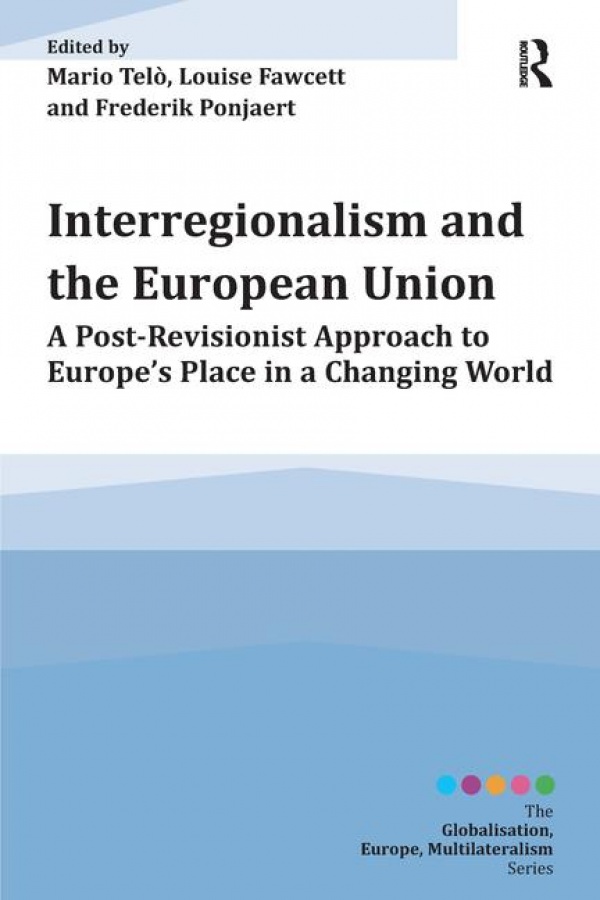Interregionalism and the European Union. A Post-Revisionist Approach to Europe's Place in a Changing World

Routledge. Oct 2015
Is the EU isolated within the emergent multipolar world? Concentrating on interregional relations and focussing on the European Union’s (EU) evolving international role with regards to regional cooperation, this innovative book collects a set of fresh empirical analyses of interregional ties binding the EU with its Eastern and Southern neighbourhood, as well as with Asia, Africa and the Americas. The 25 leading authors from 5 continents have contributed original and diverse chapters and the book advances a novel theoretical ‘post-revisionist’ approach beyond both the Eurocentrism of ‘Europe First’ perspectives as well as the Euroscepticism of those advocating to simply move ’Beyond Europe’.
After a Foreword by A. Acharya, the book’s five sections reflect the main drivers of EU interregional policies: The European Union as a Sophisticated Laboratory of Regional and Interregional Cooperation (with chapters by M. Telò, L. Fawcett and T. Risse), De Facto Drivers of Regionalism (F. Ponjaert, M. Shu, A. Valladão and C. Jakobeit), De Jure Drivers of Regionalism (S. Lavenex, G. Finizio, C. Jakobeit, R. Coman, C. Cocq & S. Teo L-Shah), Cognitive Drivers of Regionalism (J. Rüland, E. Fitriani, S. Stavridis & S. Kingah, P. Bacon), and Instrumental Drivers of Regionalism (B. Delcourt, C. Olsson & G. Müller, A. Malamud & P. Seabra and L. Fioramonti & J. Kostopoulos).
![]()
This project receives funding from the European Union's Horizon 2020 research and innovation programme under the Marie Sklodowska-Curie Grant Agreement No 722826.
















